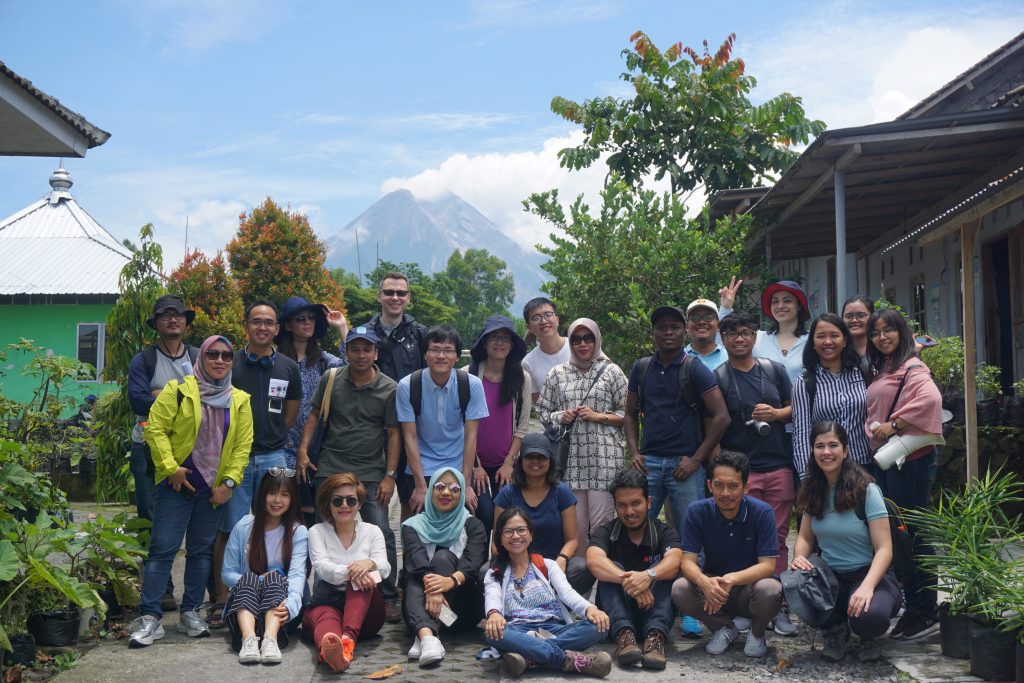 Twenty-one participants from across the Asia-Pacific region recently took part in the 2019 ProSPER.Net Young Researchers’ School (YRS), hosted by Universitas Gadjah Mada, held in Yogyakarta, Indonesia, from 3rd – 12th March, 2019. Participants included Masters and PhD students from ProSPER.Net member universities, lecturers, and government officers.
Twenty-one participants from across the Asia-Pacific region recently took part in the 2019 ProSPER.Net Young Researchers’ School (YRS), hosted by Universitas Gadjah Mada, held in Yogyakarta, Indonesia, from 3rd – 12th March, 2019. Participants included Masters and PhD students from ProSPER.Net member universities, lecturers, and government officers.
The theme for this year’s YRS, ‘Ecosystem-based Disaster Risk Reduction and Climate Change Adaptation’, provided participants with the opportunity to engage with issues related to Ecosystem-Based Disaster Risk Reduction (Eco-DRR) in the context of the tropics, as well as an understanding of the issues and problems related to hazards and disasters within the context of the UN 2030 Agenda and the Sustainable Development Goals (SDGs).
The location for the 10-day School – in Yogyakarta, Indonesia, situated on the ring of fire and in one of the most disaster-prone countries in the world – enabled students to see first-hand a city and community learning to live with disasters over time. Earthquakes, floods, and disasters related to volcanoes (particularly Merapi Volcano, one of the most active in the world) are just some of the natural disasters faced in the region.
The first day provided an overview from UNU-IAS (United Nations University Institute for the Advanced Study of Sustainability) on Sustainability Science, Disaster Risk Reduction, Climate Change Adaptation, and Research Communication. The global landscape for disaster risks and international processes and frameworks was presented, along with current actions and strategies towards urban risk reduction. Climate change adaptation policies, practices, and theories were also introduced.
A lecture on research communication outlined the importance of effective communication in science, as well as its role in helping others understand the implications and issues connected to one’s research, enabling for results and conclusions to be assessed, used, or built on further.
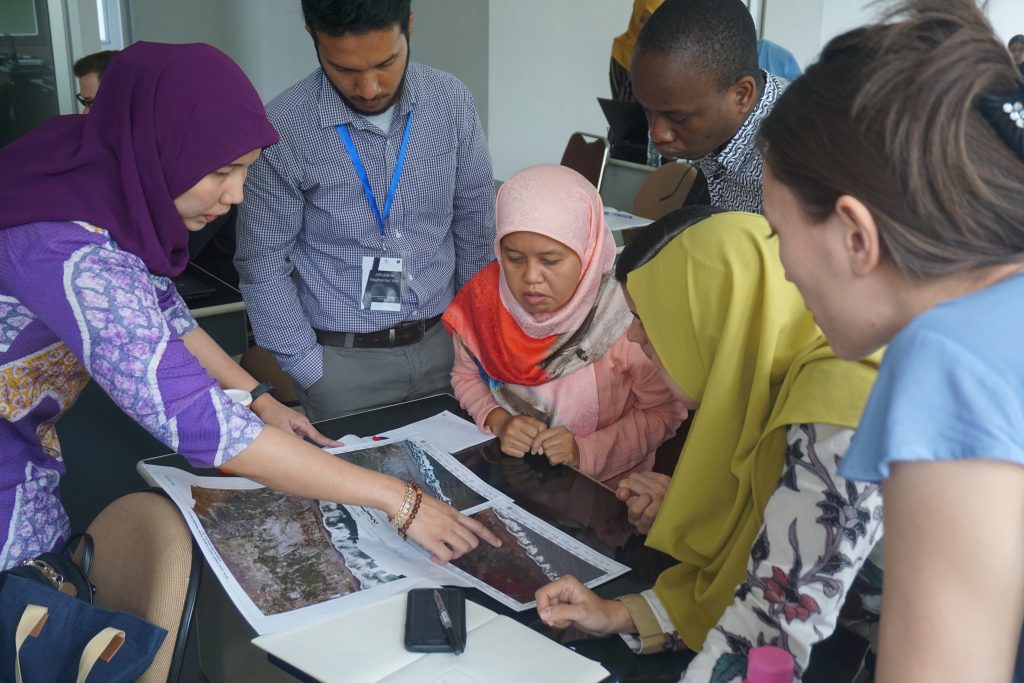 On subsequent days, students learnt about hazards, including how to conduct hazard identification, assessment, and mapping. A lecture on vulnerability analysis presented a number of case studies and allowed students to exercise critical thinking about different types of vulnerability (physical, social, economic, environmental).
On subsequent days, students learnt about hazards, including how to conduct hazard identification, assessment, and mapping. A lecture on vulnerability analysis presented a number of case studies and allowed students to exercise critical thinking about different types of vulnerability (physical, social, economic, environmental).
The importance of engaging with the community for Participatory GIS for Disaster Management and different forms of participatory mapping, approaches, platforms, and tools were covered, as was Spatial Planning in the context of disaster management, about how the use and control of space can contribute to reducing vulnerability within a population.
Local examples related to post-disaster response processes were presented, looking at the different phases including humanity and emergency responses, the transition period, and rehabilitation and reconstruction. Insights and lessons learnt were shared, as was the importance of appropriate policies, strategies, and adherence to the principle to ‘Build Back Better’.
Lectures were also given on climate change adaptation in the context of the fishery and agriculture sectors and best practices from within Indonesia. A panel of experts presenting on ‘Life after PhD’ stressed the importance of networking and provided participants with an understanding of career options post-PhD.
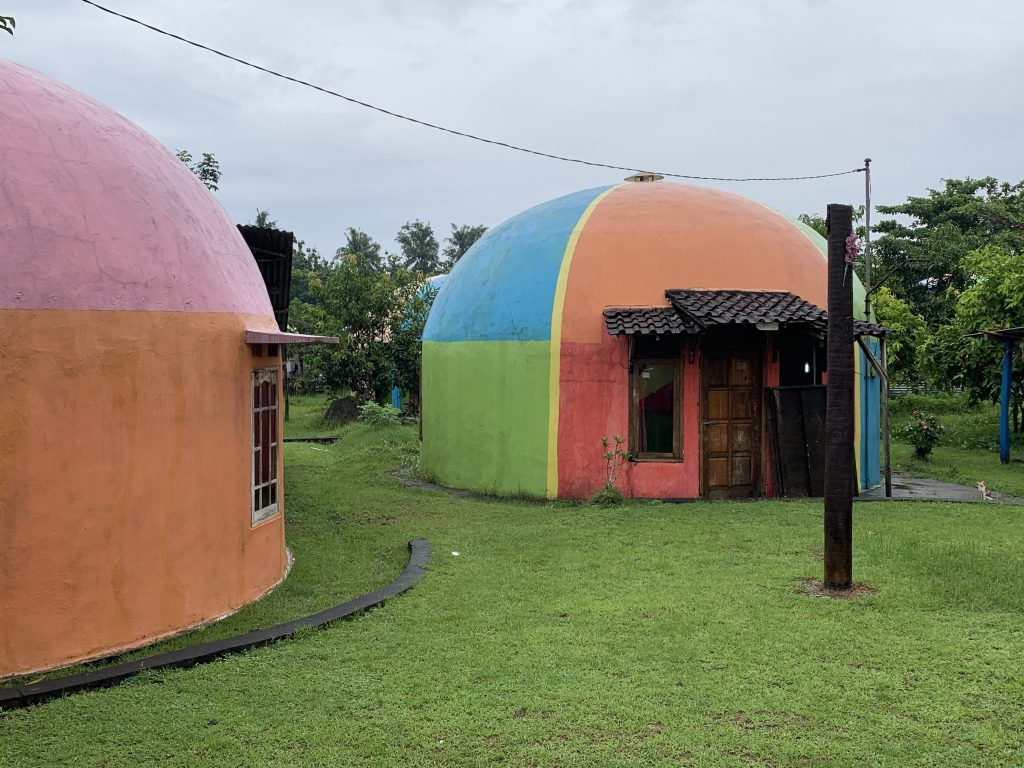 Visits to a number of sites in the Yogyakarta region enabled students to see real-life examples of disaster risk management, particularly buildings constructed to house displaced communities. One such site was Desa Wisata Rumah Domes, a settlement containing earthquake-resistant houses built for victims from Nglepen village who lost their homes in the 2006 earthquake and subsequent landslide that occurred in the region. The structure of the domes are unique; they are made out of concrete, have no roof, and are not only windproof and fire-resistant – but most importantly in this earthquake-prone area – cannot collapse. The uniqueness of the design was initially described by some as ‘alien’, however has since turned into a tourist attraction which has created livelihood opportunities for the villagers. Students were given an insight into how the community has adapted to this relocation, as well as the challenges and opportunities that have come with it.
Visits to a number of sites in the Yogyakarta region enabled students to see real-life examples of disaster risk management, particularly buildings constructed to house displaced communities. One such site was Desa Wisata Rumah Domes, a settlement containing earthquake-resistant houses built for victims from Nglepen village who lost their homes in the 2006 earthquake and subsequent landslide that occurred in the region. The structure of the domes are unique; they are made out of concrete, have no roof, and are not only windproof and fire-resistant – but most importantly in this earthquake-prone area – cannot collapse. The uniqueness of the design was initially described by some as ‘alien’, however has since turned into a tourist attraction which has created livelihood opportunities for the villagers. Students were given an insight into how the community has adapted to this relocation, as well as the challenges and opportunities that have come with it.
A field trip to the Parangtritis Geomaritime Science Park, a centre for coastal and marine studies, allowed students to learn about and observe the geospatial areas of the Bantul coast and how ecosystem services can be managed to reduce disaster risk in the coastal area of Parangtritis. The site is also the location of active sand dunes, formed from the karst landscape, which also serves to act as a barrier from tsunamis along the coastline. The sand dunes in this area are unique due to their crescent-shape (Barchan), which are usually only found in arid areas.
The final field trip day took students to the Mount Merapi Museum to learn about Mount Merapi and its eruptions since the 18th century, including associated impacts, risk assessments, and evacuations that have taken place. This was followed by a visit to Huntap Pagerjurang, a resettlement village, where students could see directly how people affected by a disaster have had to adapt to new living spaces and conditions. A jeep tour brought students closer to the summit of Mount Merapi, allowing the local community to show the students different affected areas, where they were provided with further details about the eruption in 2010 and the impact of the pyroclastic flows and lahar.
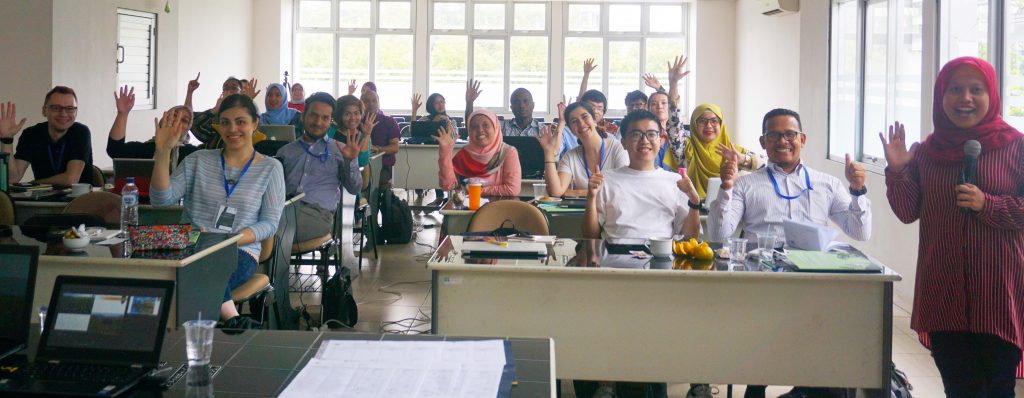 Amongst the lectures and field trips, students worked in groups to develop and present research proposals related to natural disasters that societies may need to respond to, including coastal storms (hurricanes and typhoons), earthquakes and volcanoes, tsunamis, and urban flooding. These included understanding the effectiveness and adequacy of tsunami evacuation mechanisms in place in the Indian Ocean region, and how to apply flood-proofing measures in Kampung Baru, Indonesia. Another group sought to understand the community adaptation mechanisms of two rehabilitation and reconstruction sites in Indonesia affected by earthquake and volcanic activity. Working in groups across different backgrounds, universities, and disciplines, this task not only aided in the development of communication and problem solving skills, but provided students with experience in working in diverse teams.
Amongst the lectures and field trips, students worked in groups to develop and present research proposals related to natural disasters that societies may need to respond to, including coastal storms (hurricanes and typhoons), earthquakes and volcanoes, tsunamis, and urban flooding. These included understanding the effectiveness and adequacy of tsunami evacuation mechanisms in place in the Indian Ocean region, and how to apply flood-proofing measures in Kampung Baru, Indonesia. Another group sought to understand the community adaptation mechanisms of two rehabilitation and reconstruction sites in Indonesia affected by earthquake and volcanic activity. Working in groups across different backgrounds, universities, and disciplines, this task not only aided in the development of communication and problem solving skills, but provided students with experience in working in diverse teams.
Students also took part in a research communication competition – the Three Minute Thesis (3MT®) – in which they were challenged to present their research in a concise and compelling way, suitable for a non-specialist audience, to develop their public speaking and scientific communication skills. Vu Quynh Anh Cao (The University of Tokyo) took out first prize, speaking about developing countries and their adaptation to sea level rise, with Ven Paolo Bruno Valenzuela (University of Tokyo) and Chawadee Nguanson (Prince of Songkla University) awarded as first and second runners-up respectively. Zhu Deng (Tsinghua University) received the People’s Choice award for his presentation on the effects of PM 2.5 (particle pollution) on the air quality in China.
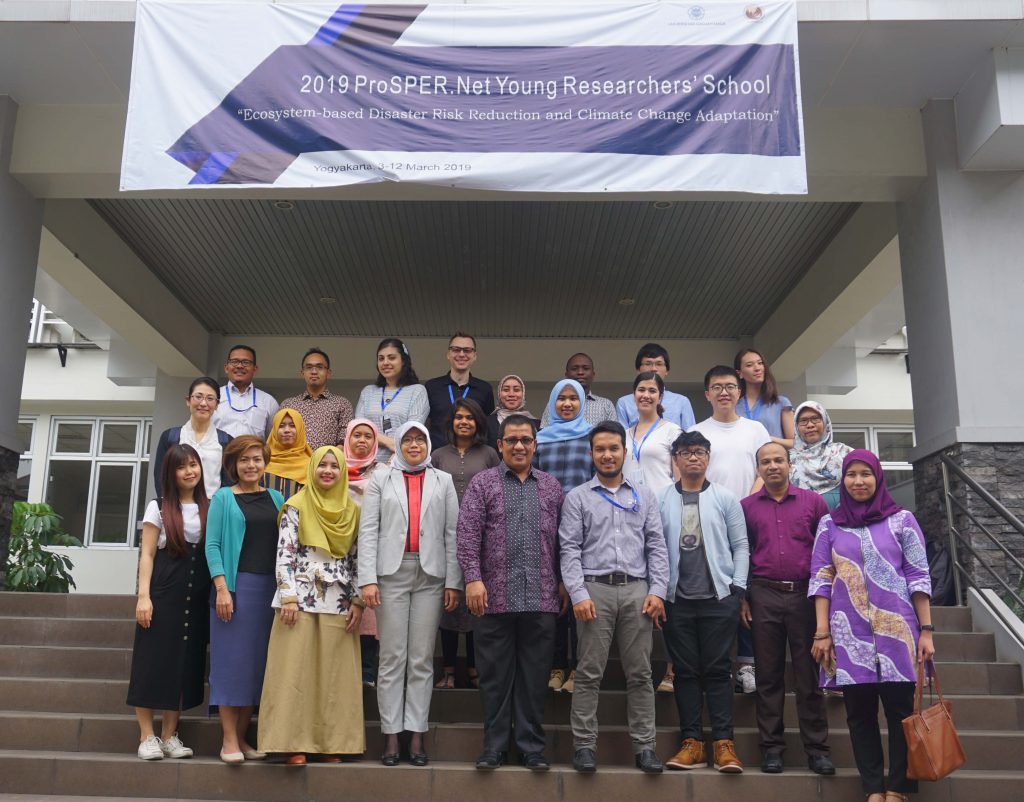 Throughout the programme, students benefitted from a variety of in-class components (lectures, practical exercises, individual and group assignments, presentations, and discussions), as well as field trips to see how communities have learned to live and cope with disasters.
Throughout the programme, students benefitted from a variety of in-class components (lectures, practical exercises, individual and group assignments, presentations, and discussions), as well as field trips to see how communities have learned to live and cope with disasters.
At the conclusion of the School, the participating students left Yogyakarta with valuable lessons and insights on the area of disaster risk management, shaped by the local expertise and experiences shared. The importance of working together, local knowledge, and learning from one another, especially when it comes to mitigating disasters and adapting to climate change, has never been more important. Climate events and anomalies around the world have meant that globally, the risks and impacts of climate change will affect us all, and that action and mitigation pathways need to be acted on now.
About the YRS: The YRS assembles young scientists together for an intensive workshop over the course of one to two weeks, giving students the opportunity to learn from experts and providing them with the tools to launch innovative research projects and to develop communication skills, whilst fostering the growth of a network of sustainability scholars and professionals in the Asia-Pacific region.
The ProSPER.Net Secretariat would like to thank our wonderful hosts Universitas Gadjah Mada, its staff and its students, for their superb organisation and tireless dedication in delivering a successful Young Researchers’ School.
Outcomes from the 2019 ProSPER.Net Young Researchers’ School can be accessed here.
A video of the School can be viewed here. Photos have been uploaded on Facebook here.
Photo and video credits: Suriadi, and UNU-IAS (middle right).
